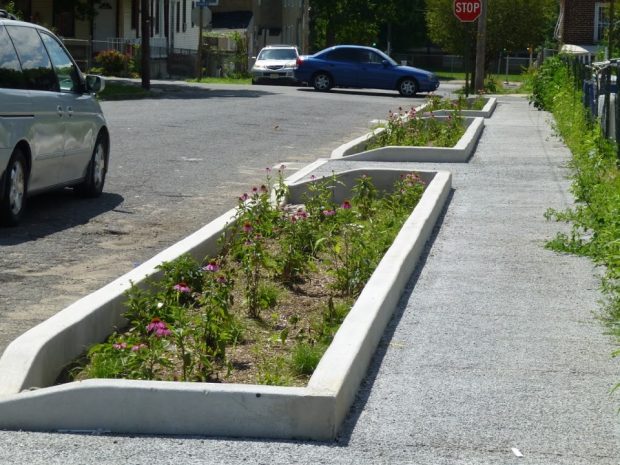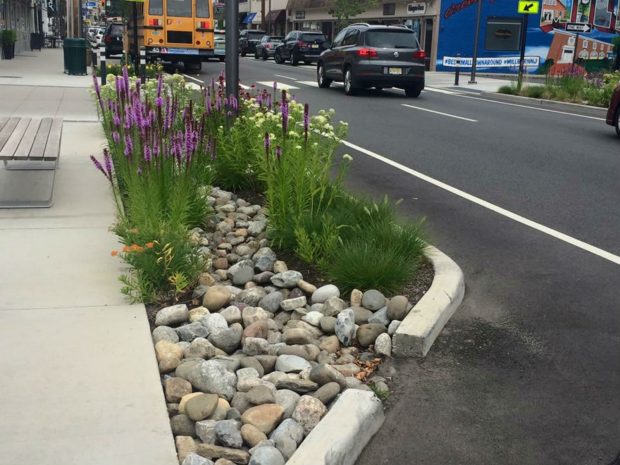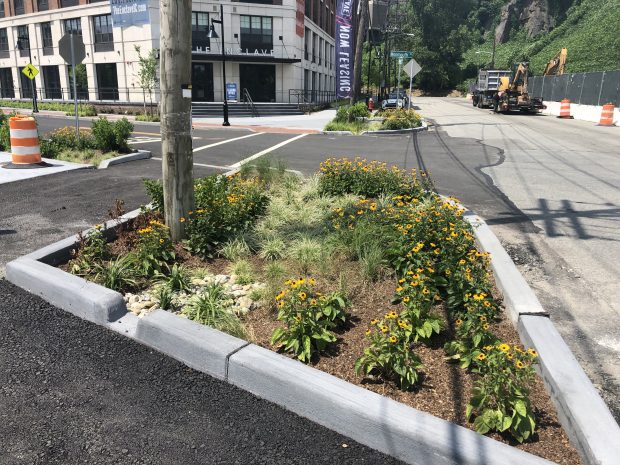Green Streets



A green street uses green infrastructure to manage stormwater runoff while also providing a safe and accessible route for all users. Green streets incorporate green infrastructure practices that capture rainwater to reduce flooding and pollution. Green infrastructure along streets can take many different forms, such as stormwater planters and tree trenches, pervious pavements, vegetated curb bump-outs, and bioswales.
Municipalities throughout New Jersey have created green streets. View examples here.Are there others we left out? Email us (greeninfrastructure
|
What you can do: Adopt a Green Streets Policy!
The New Jersey Department of Transportation’s Complete & Green Streets for All: Model Complete Streets Policy & Guide can help towns prioritize green streets in road projects.
This policy and guide is a one-stop resource for New Jersey municipalities, counties, agencies, organizations, and advocates. It makes the connection between complete streets and health, economic development, equitable transportation expenditures and project selection, and green streets. It also contains sample language for communities to amend existing complete street policies or adopt new ones.
Complete & Green Streets for All was developed by government and nonprofit partners including the Tri-State Transportation Campaign, the Voorhees Transportation Center atRutgers University, New Jersey Department of Transportation, American Heart Association—NJ Chapter, New Jersey Future and Jersey Water Works , AARP—NJ, Sustainable Jersey, Greater Mercer Transportation Management Agency, RideWise Transportation Management Agency, the Bicycle Coalition of Greater Philadelphia, and other stakeholders.
Resources
To learn more about green streets, view these resources.

 njfuture
njfuture org
org









